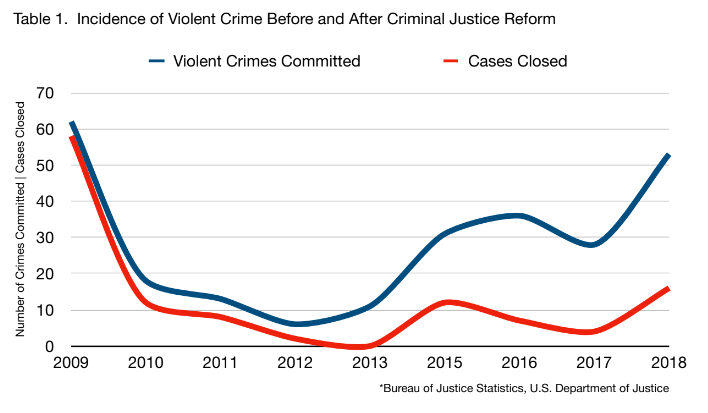Barton: The reality of violent crime
By Matthew Barton
Note: The following is an op-ed article provided by Hernando attorney Matthew Barton, who is a candidate for DeSoto County District Attorney. Barton and current DA Bob Morris are candidates for the office.
In 2014, Mississippi enacted criminal justice reforms aimed at reducing prison populations. The Mississippi legislature, inspired by the data collected by the Corrections and Criminal Justice Task Force, passed H.B. 585. At the time, Gov. Phil Bryant heralded the reforms as a win for public safety and fiscal responsibility. Time, however, has not been kind to the reforms of 2014. Unfortunately, the application of H.B. 585 has evolved into a catch-and-release program that allows career criminals to operate in our communities. It is time to redress the reforms of 2014, this time focusing on honest sentencing, curtailing recidivism, and proactive policing.
Prior to criminal justice reform, the Mississippi prison system was, at minimum, bloated, perhaps even busting at the seams. At the same time, violent crime in DeSoto County was remarkably lower, falling from an all-time high in 2009 to an all-time low in 2012. However, in the two years following the implementation of the reforms, DeSoto County saw a 600% increase in violent crime, when compared to two years prior to reform. The criminal justice reforms of 2014 undid all of the momentum dedicated police officers had worked tirelessly to build. As a result, a significant gap has emerged — and continues to widen — between violent crimes committed and violent cases closed. Prior to reform, investigations almost always led to indictments. Now, less than 50% of DeSoto County’s violent crimes are closed. Police departments have become inundated, and thus overwhelmed, with crime committed by repeat offenders that should still be in jail. As the volume of crime increases, the time to investigate individual crimes decreases, which leads to fewer indictments. Fewer indictments allows more criminals to remain on the streets, thus making the crime problem self-perpetuating.
To right the proverbial ship, it is important to focus on three key areas: honest sentencing, deterring recidivism, and transitioning to a proactive model of law enforcement. Honest sentencing deters initial criminal activity, as well as recidivist criminal behavior, because it shows criminals that they will pay for their crimes. Moreover, utilizing the habitual offender statutes in the criminal code could substantially reduce the number of career criminals on the streets, which would allow law enforcement officers to more efficiently address the remaining criminal element.
The current catch-and-release philosophy has been proven to be ineffective. During a time when state prison populations have declined by more than 25%, DeSoto county has seen a 7-fold increase in violent crime — from 53 violent crimes committed in 2018, to 389 in 2022. In that same timeframe, there has been a 630% increase in cases that have not been closed. This increase in recidivist crime has created a massive, yet undeserved, burden on law enforcement officers. Departments do not have the manpower to proactively police neighborhoods because they are overwhelmed with the myriad of offenses committed by recidivist criminals.
It is time to recognize Mississippi’s criminal justice reforms, while well intentioned, have not been successful. They have created more problems than they have solved. To successfully deter crime, officers must be afforded the opportunity to police proactively, not reactively. However, officers cannot police proactively if they are forced to chase criminals that should already be in jail. It is time to replace catch-and-release with honest sentencing. It is time to empower officers so that they can police proactively instead of reactively. This is the path to a safer DeSoto County, and it is time to make a change.



